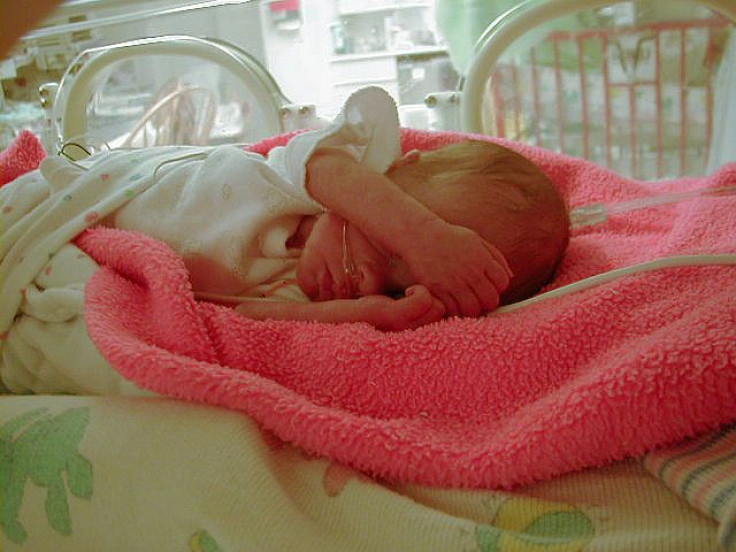Low Birth Weight And Premature Babies More Likely To Become Introverted, Neurotic As Adults

Preterm birth and low birth weight often affect a baby’s cognitive development, but do these birth circumstances also influence a baby’s adult personality? Babies born severely underweight or very premature are more likely to become introverted, neurotic, and risk-averse as adults, new research suggests.
Common standards are used to classify irregular birth conditions. Babies born at a gestational age of less than 32 weeks are considered “very preterm,” while babies born 3.3 pounds or less are considered “very low birth weight.” It is well-known that babies who fall into either of these categories are at-risk for developmental problems. Looking beyond neurology, researchers from University Hospital Bonn, Oxford, and other English universities decided to construct a general personality profile for babies born either severely premature or underweight.
The research team analyzed and compared personality traits of two separate groups of 26-year-olds. The first group (200 people) had been born either severely premature and/or underweight, while the second group (197 people) had been born at term and within a normal weight range. The premature or low birth weight participants had been tracked as part of the Bavarian Longitudinal Study; all had been born between January 1985 and March 1986 in Southern Bavaria, Germany and all had required hospital admission within the first 10 days of life. The normal birth infants were born in the same obstetric units as these preemies and recruited to serve as controls in the study.
The researchers assessed personality traits of the now 26-year-olds across five dimensions: extraversion and introversion; emotional stability and neuroticism; conscientiousness and impulsivity; agreeableness and hostility; and openmindedness and closemindedness. These core traits as natural language terms most people commonly use to describe themselves and others and are referred to by psychologists as the Big Five Personality Traits. Comparing the 26-year-olds, the researchers discovered shared traits among those born early or underweight.
The former premature or low-weight babies reported significantly higher levels of autistic spectrum behaviors, introversion, neuroticism, agreeableness, and lower levels of risk taking. This entire cluster of traits, the researchers say, describes a “socially withdrawn personality” — someone who is easily worried, less socially engaged, less interested in risk-taking, and less communicative.
They speculate children born too early or too thin are exposed to considerable stress in neonatal intensive care units and this in turn affects not only brain development but also their adaptive abilities. As they grow, anxious parents become overly protective.
Past studies have demonstrated premature/low birthweight babies find it more difficult to make friends, find long term partners, and become a parent. They are less likely to continue onto higher education or get a well paid job.
The new findings, the researchers note, might help explain the higher rates of relationship and career difficulties within this group. More importantly, they suggest parents work with their children as soon as possible to encourage them to develop social skills and so compensate for potentially negative personality characteristics.
Source: Eryigit-Madzwamuse S, Strauss V, Baumann N, Bartmann P, Wolke D. Personality of adults who were born very preterm. Archives of Disease in Childhood. 2015.



























